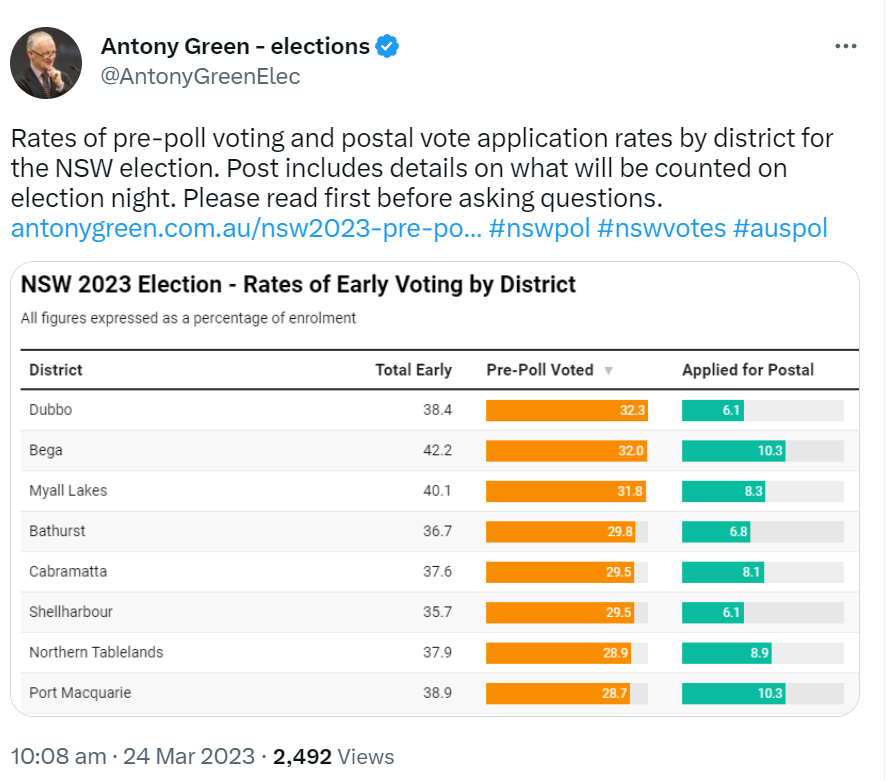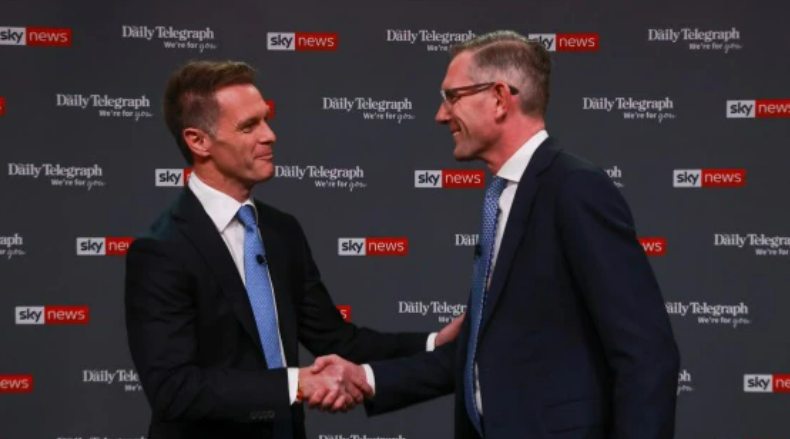In the final day of an increasingly tight election campaign, with numerous redistributed seats proving that the outcome of the Saturday, March 25th NSW State Election is especially tricky to forecast.
Considering the uncertainty, the Nexus APAC team has compiled a summary of what you need to know about the election – who the key players are, the most salient issues dividing their campaigns, and why this election matters.
Potential Premier – Chris Minns?
The son of a school principal and a solicitor who grew up in the southern suburbs of Sydney, NSW Labor Leader Chris Minns joined Labor aged 17 under the influence of his father, a Paul Keating devotee. A member of Labor’s Right faction, he served as President of Young Labor, a local councillor, an assistant secretary in Sussex Street, as well as stints as a staffer for former NSW Labor Minister Carl Scully and Minister John Robertson. Other aspects of Mr. Minns’ diverse vocational history include time spent as a retained firefighter, work at a youth mental health charity, and a master’s degree at Princeton University.
Mr. Minns’ tenure as the NSW Labor Leader began in June 2021. He has been active within the NSW Legislative Assembly since he was first elected the member for Kogarah in 2015, a seat which he has held for the past 2 consecutive elections. Mr. Minns was also the NSW Shadow Minister for Water from 2016 to 2019, as well as the NSW Shadow Minister for Transport and the NSW Shadow Minister for Corrections from July 2019 to May 2021.
Current Premier – Dominic Perrottet?
Born and raised in Epping, Premier Dominic Perrottet is the youngest politician ever to serve as Premier of NSW. A member of the conservative arm of the NSW Liberal Party, Premier Perrottet was active in student politics whilst studying Law and Commerce at the University of Sydney and went on to work as a commercial lawyer for Henry Davis York in the areas of banking restructuring and insolvency law. Premier Perrottet was the President of the NSW Young Liberals in 2005 and served on the NSW State Executive of the Liberal Party from 2008 to 2011.
Premier Perrottet has served as the 46th Premier of NSW and leader of the NSW division of the Liberal Party since he assumed office on 5 October 2021, following the resignation of the former Premier Gladys Berejiklian. Initially elected to parliament as the member for Castle Hill in 2011, he has since shifted to the seats of Hawkesbury and then Epping. He was swiftly promoted to the front bench after just three years in office when he was made Minister for Finance, Services, and Property in the first and second Baird Ministries. When Berejiklian became Premier, Perrottet was elected deputy leader of the Liberal Party and took on the Treasury portfolio.
ISSUES THAT SHAPED THE CAMPAIGN
Cost of Living
Inflation is at the highest level we’ve seen in 3 decades, and there have been nine successive interest rate hikes since May. It’s, therefore, no surprise that the cost of living is the most pressing issue by a fair margin for many NSW voters.
On NSW Labor’s cost of living policy, Mr Minns has said “We will remove or reduce stamp duty for 95% of first home buyers, abolish the Liberals forever land tax on the family home and implement real reform for renters.”
“NSW Labor will invest in community batteries to help households take advantage of their rooftop solar, use more of the power they actually generate, and lower their overall power bills,” Minns said.
On the other hand, Premier Perrottet has said that only the Liberal and Nationals’ “long-term economic plan” would take pressure off household budgets.
On top of citing the $7 billion provided by the Coalition to help ease pressure on household budgets, Premier Perrottet has said “We are making a commitment to families and businesses across the state that there will be no new taxes in the next term of government under the Liberal and Nationals, providing them with financial certainty as they manage their budgets.”
Gambling Reform
Gambling reform could prove crucial, with independents Alex Greenwich, Greg Piper, and Joe McGirr reiterating that their guarantee of supply and confidence in a minority government would be dependent on committing to transitioning to mandatory cashless gaming on NSW poker machines.
Opposition Leader Chris Minns has said that he is unwilling to make any changes to his gambling reform package. In response to a NSW Crime Commission recommendation to mandate cashless gaming, Labor has committed to a 500-machine trial, insisting more evidence is needed for the technology.
Premier Dominic Perrottet has promised that should the NSW Liberals win the election, all cash will be removed from machines by the end of 2028, despite some vocal opposition from industry and lobby groups.
Education
NSW Labor has promised a permanent literacy and numeracy tutoring program to lift falling standards and will create a $400 million future education fund to boost underfunded schools. Labor says the funding commitment over four years would also see NSW reach 75 percent of its schooling resource standard (SRS) by 2025 – two years earlier than the NSW Coalition.
NSW Labor Party, with Leader Chris Minns, has already promised to convert 10,000 temporary teachers to permanent positions if it wins the March 25 poll. As well as cutting administration hours for teachers by five hours per week and banning the use of mobile phones by students in all NSW public schools to reduce distraction.
The Coalition’s cornerstone education policy of offering free preschool to 50,000 four-year-olds by 2027 includes a promise to spend $1 billion to start building 500 new preschools. The commitment brings forward plans to offer five days per week of extra schooling before kindergarten to every four-year-old by 2030.
Premier Perrottet’s Coalition Government, which introduced small-group tutoring after COVID lockdowns to support school students who fell behind, has also announced a $253 million funding boost to continue the program for this school year. Schools have already been provided $80 million in tutoring funding for the start of 2023, which will now be supplemented by an extra $173 million.
Infrastructure
Despite Premier Perrottet ruling out more privatisation under a future Coalition government, Labor leader Chris Minns said a Coalition Government will be left with no choice but to return to asset recycling to pay for new Metro lines and motorways.
Premier Perrottet has said he will borrow to pay for future multibillion-dollar projects his government has committed to, meaning the state’s gross debt may climb higher than the $187 billion predicted by 2026.
During the second debate between the two, debt was mentioned 25 times – second only to privatisation, which was mentioned 28 times.
STATE OF PLAY IN THE NSW PARLIAMENT – WHAT TO EXPECT GOING FORWARD
The lack of a majority heading into the election has given this election an unusual twist.
Moreover, a raft of electorate boundary changes since the last election will see about half a million voters in a different lower house seat for this election.
As it stands, Premier Dominic Perrottet’s incumbent Liberal-National Coalition has a tally of 46 seats – two fewer than it won in 2019 and one short of an outright majority in the Legislative Assembly.
The starting point for Chris Minns’ NSW Labor Party is 38 seats – two more than it won last time but still nine shy of a majority.
Another nine seats are held by crossbenchers, including three Greens.
There is a strong possibility the election will deliver a hung parliament, meaning the new government must rely on crossbench support to operate. The Coalition has spent the last two years governing without a formal majority with the support of Independents in the NSW lower house.
Labor’s task is more challenging – it needs a uniform swing of more than 6 percent to take the seats required for an outright majority. The Greens are committed to supporting a Labor government.
While most attention will be on how the numbers fall in the lower house, the State’s 5.5 million registered voters will also elect 21 of the 42 members of the Legislative Council, the upper house of the NSW parliament.
If NSW Labor are to win this election, and form government, it would leave Tasmania as the only Liberal government jurisdiction in the country.
In case you missed it:

Latest posts by Nexus APAC (see all)
- United Kingdom General Election 2024: An Overview - April 15, 2024
- Australian Voters Go to the Polls - February 26, 2024
- Secretaries of Federal Departments – An Overview - February 1, 2024



